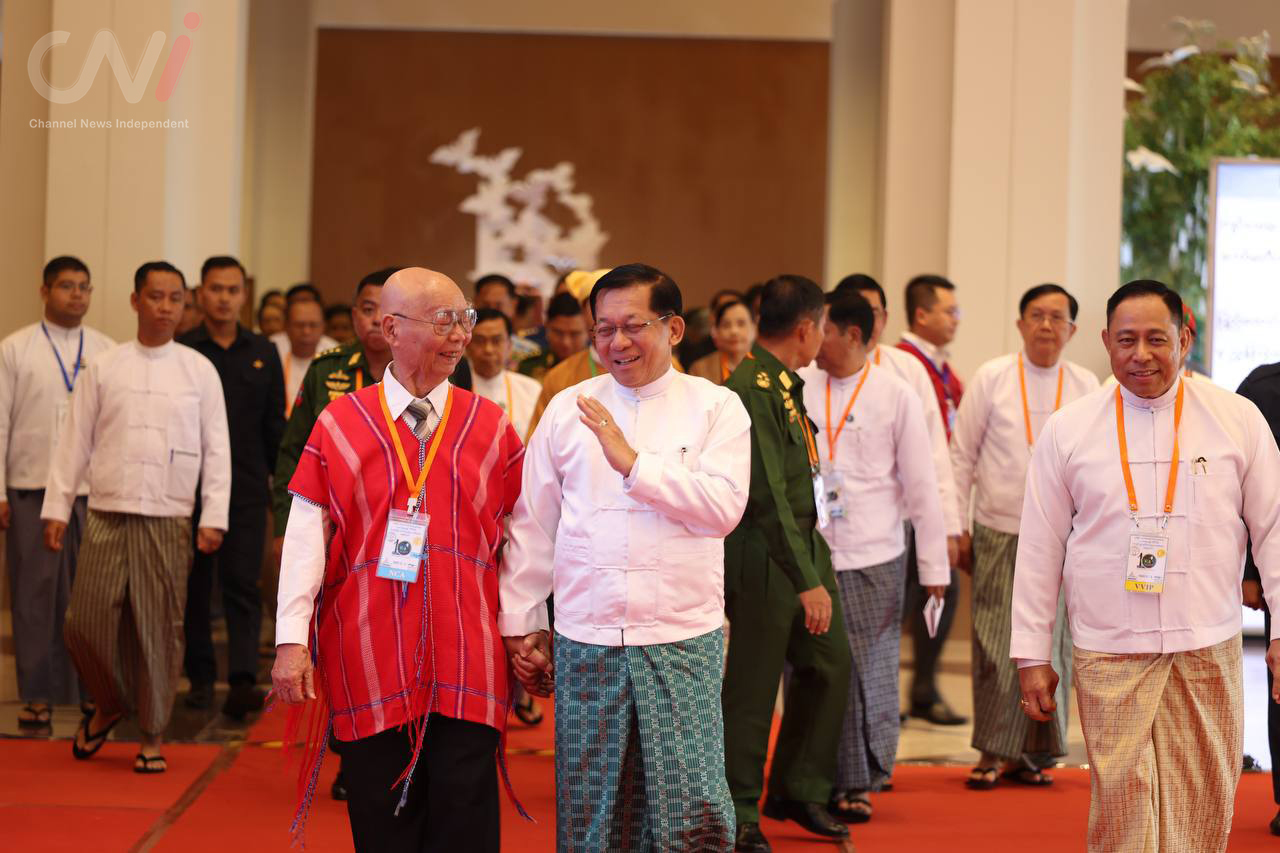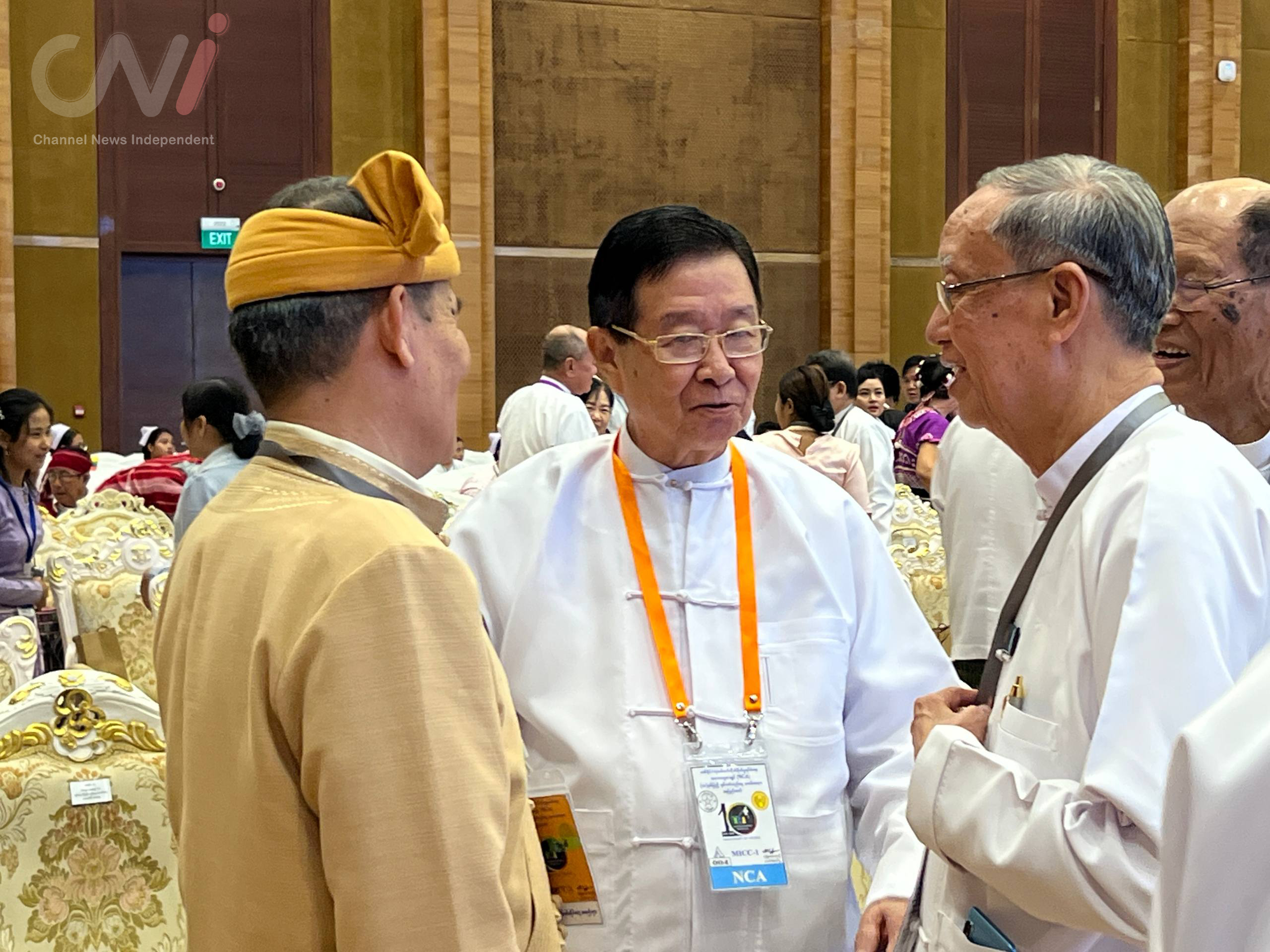CNI News
8 November 2025
The peace process and ceasefire efforts in Myanmar should be carried out as a national process rather than within the term of a particular government, said U Ko Ko Gyi, Chairman of the People’s Party (PP), to CNI News.
Observers of political and military affairs point out that peace cannot be achieved without addressing the fundamental causes of conflict—such as historical backgrounds, ideological differences, and political convictions.
They added that concepts such as maintaining a single national army, recognizing ethnic armed organizations, and granting self-administered regions are all security-based perspectives that cannot be achieved in a short period of time.
U Ko Ko Gyi emphasized that peace is not something that can be accomplished all at once, but rather a continuous national process.

Meeting between leaders of armed groups and the Tatmadaw
“Successive governments have all worked toward peace. But peace is not something that can be completed in one sitting. We must gradually hold broader and more inclusive dialogues. It’s unrealistic for any side to expect to achieve all their goals at once. That’s why we should treat peace as an ongoing process—one that aims for better, more progressive outcomes step by step. It shouldn’t be tied to the term of a government. Peace should be approached and implemented as a national process,” he told CNI News.
Military and political analysts also note that there are various ideas, thoughts, and approaches involved in carrying out peace efforts.
U Ko Ko Gyi further said that political demands should be made formally within the political framework in order to produce sustainable political results.
“Even though there are clashes and gunfire, there must still be communication channels between both sides. Political demands and aspirations can be formally expressed within the political framework.Whe n armed groups seize towns, they may gain control temporarily, but if the other side regains strength, they will seize them back—it becomes a never-ending cycle. That’s why we need to ensure that issues like equality for ethnic nationalities, federalism, separation of powers, and resource sharing are addressed and institutionalized through constitutional reform. Only then can we say the results are legitimate and lasting. Therefore, we need to work toward stable political outcomes,” he explained.

U Aung Min (then Chairman of MPC under President Thein Sein) meeting with Colonel Sai Ngin from the RCSS
In Myanmar, whenever a new government takes office, the people, policies, and organizations involved in the peace process tend to change as well.
As a result, the structures and trust built by previous governments often collapse, leading to stagnation in the peace process.
Currently, fierce fighting continues between the Myanmar military and various ethnic armed groups, while the peace process remains stalled and far from realization.




